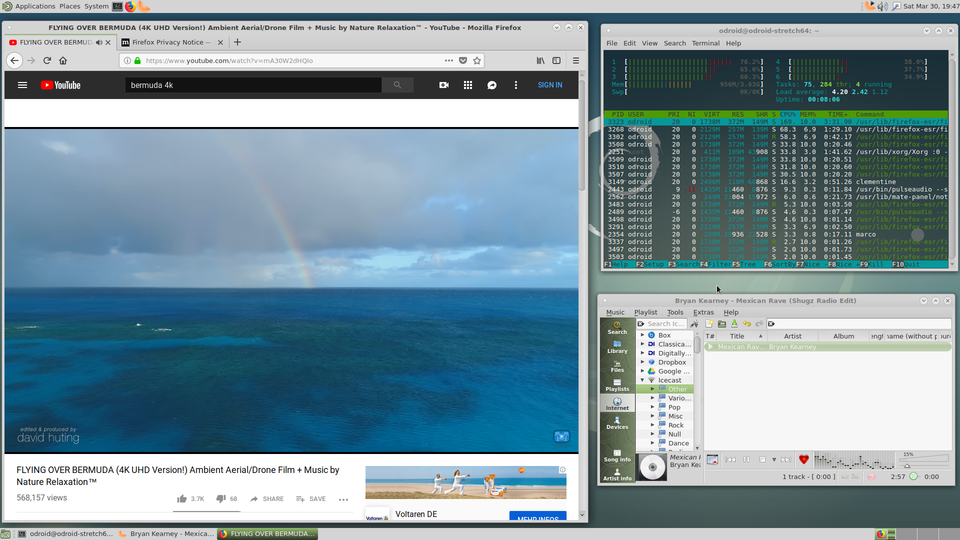Name
- Ethtool For Os X Update
- Ethtool For Os Xml
- Ethtool For Os Xenoverse
- Ethtool For Os X Catalina
- Ethtool For Os X Download
Ethtool 以太网工具; xfce 完整版; tarlz 压缩解压软件 ethtool 以太网工具 ncftp ftp 客户端 tnftp ftp 客户端 qtqr 二维码生成器 libfcitx-qt5-1 小企鹅输入法 qt5 相关库 fcitx-inputmethod-atzlinux 小企鹅输入法优先级调整; 三合一版; tarlz 压缩解压软件 ethtool 以太网工具 ncftp ftp 客户端.
ethtool - query or control network driver and hardware settings
Jan 25, 2020 Airmon-ng (Linux) requires ethtool. Windows: cygwin has to be used and it also requires w32api package. Windows: if using clang, libiconv and libiconv-devel; Linux: LibNetlink 1 or 3. It can be disabled by passing –disable-libnl to configure. Pkg-config (pkgconf on FreeBSD) FreeBSD, OpenBSD, NetBSD, Solaris and OS X with macports: gmake. Parent Directory - ModemManager-1.10.8-2.el8.x8664.rpm: 2020-04-26 18:38: 923K: ModemManager-glib-1.10.8-2.el8.i686.rpm: 2020-04-26 18:38: 269K: ModemManager. Ethtool is used to query and control network device driver and hardware settings, particularly for wired Ethernet devices. Devname is the name of the network device on which ethtool should operate. Ethtool Shows Unknown Speed and Duplex (16563881) When ethtool command is used on Oracle VM server, the status 'Unknown!' Is displayed for the Speed and Duplex settings. For example: # ethtool eth0 Settings for eth0: Supported ports: TP Supported link modes: 10baseT/Half 10baseT/Full 100baseT/Half 100baseT/Full 1000baseT/Full Supports auto-negotiation: Yes.
Synopsis
ethtooldevname
- -h --help
- Shows a short help message.
- --version
- Shows the ethtool version number.
- -a --show-pause
- Queries the specified Ethernet device for pause parameter information.
- -A --pause
- Changes the pause parameters of the specified Ethernet device.
- autoneg on|off
- Specifies whether pause autonegotiation should be enabled.
- rx on|off
- Specifies whether RX pause should be enabled.
- tx on|off
- Specifies whether TX pause should be enabled.
- -c --show-coalesce
- Queries the specified network device for coalescing information.
- -C --coalesce
- Changes the coalescing settings of the specified network device.
- -g --show-ring
- Queries the specified network device for rx/tx ring parameter information.
- -G --set-ring
- Changes the rx/tx ring parameters of the specified network device. rxN
- rx-miniN
- Changes the number of ring entries for the Rx Mini ring.
- rx-jumboN
- Changes the number of ring entries for the Rx Jumbo ring. txN
- -i --driver
- Queries the specified network device for associated driver information.
- -d --register-dump
- Retrieves and prints a register dump for the specified network device. The register format for some devices is known and decoded others are printed in hex.When raw is enabled, then ethtool dumps the raw register data to stdout. If file is specified, then use contents of previous raw register dump,rather than reading from the device.
- -e --eeprom-dump
- Retrieves and prints an EEPROM dump for the specified network device. When raw is enabled, then it dumps the raw EEPROM data to stdout. The length andoffset parameters allow dumping certain portions of the EEPROM. Default is to dump the entire EEPROM.
- -E --change-eeprom
- If value is specified, changes EEPROM byte for the specified network device. offset and value specify which byte and it's new value. If value is notspecified, stdin is read and written to the EEPROM. The length and offset parameters allow writing to certain portions of the EEPROM. Because of the persistentnature of writing to the EEPROM, a device-specific magic key must be specified to prevent the accidental writing to the EEPROM.
- -k --show-features --show-offload
- Queries the specified network device for the state of protocol offload and other features.
- -K --features --offload
- Changes the offload parameters and other features of the specified network device. The following feature names are built-in and others may be defined by thekernel.
- rx on|off
- Specifies whether RX checksumming should be enabled.
- tx on|off
- Specifies whether TX checksumming should be enabled.
- sg on|off
- Specifies whether scatter-gather should be enabled.
- tso on|off
- Specifies whether TCP segmentation offload should be enabled.
- ufo on|off
- Specifies whether UDP fragmentation offload should be enabled
- gso on|off
- Specifies whether generic segmentation offload should be enabled
- gro on|off
- Specifies whether generic receive offload should be enabled
- lro on|off
- Specifies whether large receive offload should be enabled
- rxvlan on|off
- Specifies whether RX VLAN acceleration should be enabled
- txvlan on|off
- Specifies whether TX VLAN acceleration should be enabled
- ntuple on|off
- Specifies whether Rx ntuple filters and actions should be enabled
- rxhash on|off
- Specifies whether receive hashing offload should be enabled
- -p --identify
- Initiates adapter-specific action intended to enable an operator to easily identify the adapter by sight. Typically this involves blinking one or more LEDson the specific network port. N
- -P --show-permaddr
- Queries the specified network device for permanent hardware address.
- -r --negotiate
- Restarts auto-negotiation on the specified Ethernet device, if auto-negotiation is enabled.
- -S --statistics
- Queries the specified network device for NIC- and driver-specific statistics.
- -t --test
- Executes adapter selftest on the specified network device. Possible test modes are:
- offline|online|external_lb
- defines test type: offline (default) means to perform full set of tests possibly causing normal operation interruption during the tests,online means to perform limited set of tests do not interrupting normal adapter operation, external_lb means to perform external-loopback test inaddition to other offline tests.
- -s --change
- Allows changing some or all settings of the specified network device. All following options only apply if -s was specified.
- speedN
- Set speed in Mb/s. ethtool with just the device name as an argument will show you the supported device speeds.
- duplex half|full
- Sets full or half duplex mode.
- port tp|aui|bnc|mii
- Selects device port.
- autoneg on|off
- Specifies whether autonegotiation should be enabled. Autonegotiation is enabled by default, but in some network devices may have trouble with it, so you candisable it if really necessary.
- advertiseN
- Sets the speed and duplex advertised by autonegotiation. The argument is a hexadecimal value using one or a combination of the following values:
- sopassxx:yy:zz:aa:bb:cc
- msglvlN
msglvltypeon|off ... - Sets the driver message type flags by name or number. type names the type of message to enable or disable; N specifies the new flagsnumerically. The defined type names and numbers are: The precise meanings of these type flags differ between drivers.
- flow-type ether|ip4|tcp4|udp4|sctp4|ah4|esp4
- srcxx:yy:zz:aa:bb:cc [mxx:yy:zz:aa:bb:cc]
- dstxx:yy:zz:aa:bb:cc [mxx:yy:zz:aa:bb:cc]
- Includes the destination MAC address, specified as 6 bytes in hexadecimal separated by colons, along with an optional mask. Valid only for flow-typeether.
- protoN [mN]
- Includes the Ethernet protocol number (ethertype) and an optional mask. Valid only for flow-type ether.
- src-ipx.x.x.x [mx.x.x.x]
- Specify the source IP address of the incoming packet to match along with an optional mask. Valid for all IPv4 based flow-types.
- dst-ipx.x.x.x [mx.x.x.x]
- Specify the destination IP address of the incoming packet to match along with an optional mask. Valid for all IPv4 based flow-types.
- tosN [mN]
- Specify the value of the Type of Service field in the incoming packet to match along with an optional mask. Applies to all IPv4 based flow-types.
- l4protoN [l4mN]
- Includes the layer 4 protocol number and optional mask. Valid only for flow-type ip4.
- src-portN [mN]
- Specify the value of the source port field (applicable to TCP/UDP packets) in the incoming packet to match along with an optional mask. Valid for flow-typesip4, tcp4, udp4, and sctp4.
- dst-portN [mN]
- Specify the value of the destination port field (applicable to TCP/UDP packets)in the incoming packet to match along with an optional mask. Valid forflow-types ip4, tcp4, udp4, and sctp4.
- spiN [mN]
- Specify the value of the security parameter index field (applicable to AH/ESP packets)in the incoming packet to match along with an optional mask. Valid forflow-types ip4, ah4, and esp4.
- l4dataN [mN]
- Specify the value of the first 4 Bytes of Layer 4 in the incoming packet to match along with an optional mask. Valid for ip4 flow-type.
- vlan-etypeN [mN]
- Includes the VLAN tag Ethertype and an optional mask.
- vlanN [mN]
- Includes the VLAN tag and an optional mask.
- user-defN [mN]
- Includes 64-bits of user-specific data and an optional mask.
- actionN
- Specifies the Rx queue to send packets to, or some other action. locN
- deleteN
- -w --get-dump
- Retrieves and prints firmware dump for the specified network device. By default, it prints out the dump flag, version and length of the dump data. Whendata is indicated, then ethtool fetches the dump data and directs it to a file.
- -W --set-dump
- Sets the dump flag for the device.
- -T --show-time-stamping
- Show the device's time stamping capabilities and associated PTP hardware clock.
- -x --show-rxfh-indir
- Retrieves the receive flow hash indirection table.
- -X --set-rxfh-indir
- Configures the receive flow hash indirection table.
- equalN
- Sets the receive flow hash indirection table to spread flows evenly between the first N receive queues.
- weightW0 W1 ...
- Sets the receive flow hash indirection table to spread flows between receive queues according to the given weights. The sum of the weights must be non-zeroand must not exceed the size of the indirection table.
- -f --flash FILE
- Flash firmware image from the specified file to a region on the adapter. By default this will flash all the regions on the adapter. N
- -l --show-channels
- Queries the specified network device for the numbers of channels it has. A channel is an IRQ and the set of queues that can trigger that IRQ.
- -L --set-channels
- Changes the numbers of channels of the specified network device. rxN
- otherN
- Changes the number of channels used only for other purposes e.g. link interrupts or SR-IOV co-ordination.
- combinedN
- Changes the number of multi-purpose channels.
- -m --dump-module-eeprom
- Retrieves and if possible decodes the EEPROM from plugin modules, e.g SFP+, QSFP
- --show-priv-flags
- Queries the specified network device for its private flags. The names and meanings of private flags (if any) are defined by each network devicedriver.
- --set-priv-flags
- Sets the device's private flags as specified.
- flagon|off Sets the state of the named private flag.
- --show-eee
- Queries the specified network device for its support of Energy-Efficient Ethernet (according to the IEEE 802.3az specifications)
- --set-eee
- Sets the device EEE behaviour.
- eee on|off
- Enables/disables the device support of EEE.
- tx-lpi on|off
- Determines whether the device should assert its Tx LPI.
- advertiseN
- Sets the speeds for which the device should advertise EEE capabiliities. Values are as for --change advertise
- tx-timerN
- Sets the amount of time the device should stay in idle mode prior to asserting its Tx LPI (in microseconds). This has meaning only when Tx LPI isenabled.
Description
ethtool is used to query and control network device driver and hardware settings, particularly for wired Ethernet devices.
devname is the name of the network device on which ethtool should operate.
Options
ethtool with a single argument specifying the device name prints current settings of the specified device.
Changes the number of ring entries for the Rx ring.

Changes the number of ring entries for the Tx ring.
Length of time to perform phys-id, in seconds.
Sets the SecureOnâ„¢ password. The argument to this option must be 6 bytes in Ethernet MAC hex format(xx:yy:zz:aa:bb:cc).
Inserts or updates a classification rule for the specified flow type.
Includes the source MAC address, specified as 6 bytes in hexadecimal separated by colons, along with an optional mask. Valid only for flow-typeether.
Ethtool For Os X Update
Specify the location/ID to insert the rule. This will overwrite any rule present in that location and will not go through any of the rule orderingprocess.
Deletes the RX classification rule with the given ID.
A number to identify flash region where the image should be flashed. Default region is 0 which denotes all regions in the flash.
Changes the number of channels with only receive queues.
txN
Changes the number of channels with only transmit queues.
Ethtool For Os Xml
Bugs
Not supported (in part or whole) on all network drivers.
Author
ethtool was written by David Miller.
Modifications by Jeff Garzik, Tim Hockin, Jakub Jelinek, Andre Majorel, Eli Kupermann, Scott Feldman, Andi Kleen, Alexander Duyck, SuchetaChakraborty.

Availability
ethtool is available from http://www.kernel.org/pub/software/network/ethtool/
Referenced By
ifplugstatusEthtool For Os Xenoverse
(8), iftab(5),mii-tool(8),pethtool(8),
iftab(5),mii-tool(8),pethtool(8),